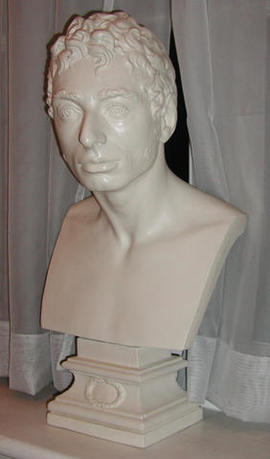Montagu, Charles, 1st Earl of Halifax, 1661-1715
- GB-2014-WSA-00732
- Pessoa singular
- 1661-1715
MONTAGU, CHARLES, 1ST EARL OF HALIFAX, fourth son of Hon. George Montagu MP, Horton, Northants, and Elizabeth, dau. of Sir Anthony Irby, Kt, Boston, Lincs.; b. 16 Apr 1661; adm. 1675; KS (Capt. ) 1677; Trinity Coll. Cambridge, adm. fellow commoner 8 Nov 1679; MA 1682; LLD 1705; Fellow, Trinity Coll. 1683 – c. 1689; High Steward, Cambridge Univ., from 1697; wrote with Matthew Prior (qv) The Hind and the Panther transvers’d to the story of the Country Mouse and the City Mouse, 1687; MP Maldon 1689-95, Westminster 1695 – 13 Dec 1700; a Clerk of the Privy Council 1689-92; a Lord Commissioner of the Treasury 21 Mar 1692 – Apr 1698; his proposal of 15 Dec 1692 to raise a million pounds by life annuities was the origin of the National Debt; his bill to establish the Bank of England became law 1694; Chancellor of the Exchequer 30 Apr 1694 – May 1699; Privy Councillor 10 May 1694; introduced the Recoinage Bill, and instituted the Window Tax to pay for the expense of the recoinage; issued the first Exchequer Bills and carried his bill for the formation of a consolidated fund to meet interest on the various government loans; First Lord of the Treasury 1 May 1697 – Nov 1699; Auditor of the Receipt of Exchequer 17 Nov 1699 – 30 Sep 1714; created Baron Halifax 13 Dec 1700; impeached by the House of Lords for obtaining grants from the King in the names of others for himself, and for his share in the Partition Treaty, but the impeachment was dismissed for want of prosecution 24 Jun 1701; charged by House of Commons for neglect of his duties as Auditor of the Exchequer, but his conduct as such was unanimously approved by the House of Lords 1703; successfully moved the rejection of the Occasional Conformity Bill 14 Dec 1703; a Commissioner for negotiating the Union with Scotland 10 Apr 1706; acted as one of the Lords Justices from Queen Anne’s death until the arrival of George I; First Lord of the Treasury from 11 Oct 1714; KG 16 Oct 1714; created Earl of Halifax 19 Oct 1714; Lord Lieutenant, Surrey, from 24 Dec 1714; a great parliamentary orator and brilliant financier; the lifelong friend of Sir Isaac Newton and a munificent patron of literature; FRS 30 Nov 1695, President 30 Nov 1695 – 30 Nov 1698; his collected poems were published in 1715; [? m. 1st, 3 Sep 1685 Elisabeth, dau. of Francis Forster, South Bailey, Durham]; m. Feb 1688 Anne, widow of his cousin Robert Montagu, 3rd Earl of Manchester, and dau. of Sir Christopher Yelverton, Bart.; d. 19 May 1715. Buried in Duke of Albemarle’s vault, Henry VII’s Chapel, Westminster Abbey. DNB.

